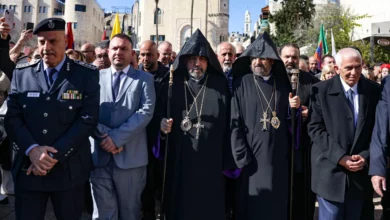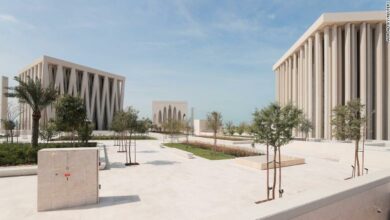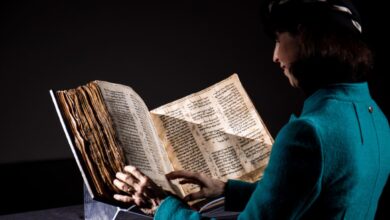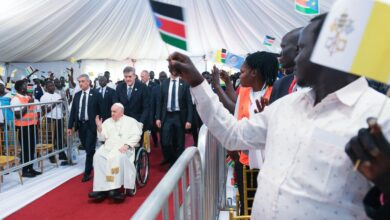Sunday marked the opening of the fifth International Forum for Arab Novel Creativity in Cairo, held at the Cairo Opera House's Small Theater. This year’s forum is called “The Arab Novel, Where is it Going?”
The forum brings together authors from around the Arab world to discuss their literary ideas in a four-day extensive program of symposiums and round tables.
The forum will come to an official close next Wednesday during which the winners will be announced.
“Freedom of Literature and Religion” was the topic of one of the forum’s first symposiums, held yesterday at the Supreme Council of Culture.
“Literature is an attempt to break from traditional thinking, as it suffers from definite boundaries that no writer is allowed to overstep,” said Mamdouh Azzam, a Syrian author.
However, he added that there are some bold authors such as Naguib Mahfouz who went against the flow in his novel “Awlaad Haraatna” (Children of the Alley), which discusses Jews, Christians and Muslims, and for which Mahfouz won the 1988 Nobel Prize for Literature.
Azzam commented on the freedom to create art in Syria saying, “There is a freedom ceiling in our country. The regime tightens censorship on literary works, especially when it comes to touching upon political issues.”
Mohamed Badwi noted that certain issues, including religion, have red lines that cannot be crossed. Consequently, even beyond official state censorship, the sensitive nature of these issues imposes restrictions on authors.
“This was conspicuous in the heavy criticism directed at the film ‘Baheb al-Cima’ (I Love Cinema), even though it only represents the Anglican community, and not all Christians,” said Badwi.
“Baheb al-Cima” was the first Egyptian movie to delve deeply and explicitly into the life of an Anglican family; some critics considered the film an offensive portrayal of all Christians.
Khaled el-Sarougi, a participating author, agreed with Badwi, saying that the tackling of Muslim or Christian religious issues in art works always provokes outrage and public controversy.
Sarougi mentioned Salmon Rushdie’s notoriously controversial novel “The Satanic Verses.” Rushdie’s book received harsh criticism from Muslims around the world owing to its negative portrayal of Ayatollah Khomeini, the leader of the 1979 Iranian Revolution.
Author Faten Hussein called on authors to not be paralyzed by fear of censorship, “which surely kills the creativity of artists.”
According to Hussein, “The Explosion of the Skull,” by Nubian author Idris Ali, won the best Egyptian Novel prize in 1999 because it crossed boundaries using a credible and objective perspective.
Ghadir Galal al-Shorbagi said that e-writing (writing online) represents a means of escape from the tough restrictions imposed by censorship on printed publications.
She added that e-publications have brought about some significant developments in the writing process.
According to al-Shorbagi, the massive number of websites that have been established especially for e-books have created a broad spectrum of readers, particularly from the younger generation.
Al-Shorbagi’s major example, Ghada Abdel Aal’s massively popular “Ayza Atgwez” (I Want to Get Married), began as a blog. Then, after proving a notable success, Dar al-Shorouk published the blog as a book.
“Ayza Atgwez” became a bestseller and was made into a TV series during last Ramadan, gaining a major audience with its portrayal of the average Egyptian woman’s quest to find a husband.
These days, al-Shorbagi explained, authors establish their own Facebook group to discuss their visions with readers and reviewers. “Some writers will leave their stories open-ended and wait for the reader’s feedback in an attempt to create a direct relation between both sides.”
Al-Shorbagy was then asked if Egypt enjoys a real freedom of expression. “Absolutely no,” she said.




